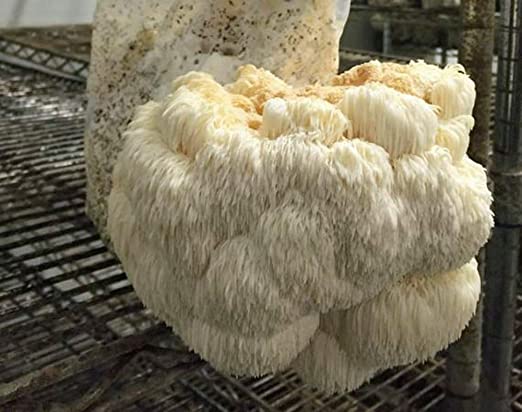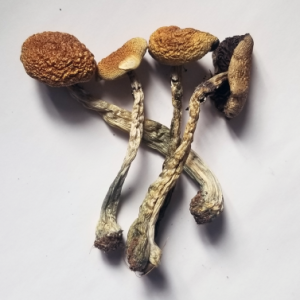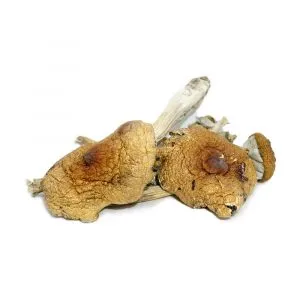Buy Lion’s Mane Mushroom Strain
Introduction
The unusual fungus known as Lion’s Mane mushroom, or Hericium erinaceus in scientific parlance, is prized for both its remarkable health advantages and unusual appearance. This mushroom, which is frequently called the “lion’s mane” because of its shaggy, white spines that resemble a lion’s mane, has become well-known in both the culinary and health and wellness communities. The Lion’s Mane strain has become a potent ally for mental health and general well-being as interest in alternative therapies increases.
Historical Background
Lion’s Mane has a rich history rooted in traditional medicine, particularly within Chinese and Japanese cultures. For centuries, it has been used in herbal medicine to enhance cognitive function, boost the immune system, and promote digestive health. The mushroom is often mentioned in ancient texts for its purported abilities to nourish the mind and body.
In recent years, scientific research has begun to validate many of these traditional claims, leading to a resurgence of interest in Lion’s Mane as a natural nootropic—substances that enhance cognitive function.
Characteristics
Lion’s Mane is easily identifiable, standing out among other fungi due to its unique morphology. Key characteristics include:
- Appearance: The mushroom features long, white spines that can grow up to 3 inches long, forming a cascading, fluffy structure. This unique look gives it a distinct, almost ethereal presence.
- Habitat: Lion’s Mane typically grows on hardwood trees, particularly oak and maple, often found in temperate regions. It thrives in both wild and cultivated environments, contributing to its availability in various forms, such as fresh, dried, or powdered.
Nutritional Profile
Lion’s Mane is not only visually striking but also nutritionally rich. It contains a variety of bioactive compounds, including:
- Polysaccharides: These compounds are known for their immune-boosting properties.
- Hericenones and Erinacines: Unique compounds found in Lion’s Mane that promote nerve growth factor (NGF) synthesis, essential for the growth and maintenance of neurons.
- Antioxidants: Lion’s Mane is rich in antioxidants, which help combat oxidative stress and reduce inflammation.
The mushroom is low in calories and fat, making it a healthy addition to any diet.
Mental and Health Benefits
Research has shown that Lion’s Mane may offer several cognitive and health benefits, contributing to its popularity among health enthusiasts:
- Mental Enhancement: Studies suggest that Lion’s Mane may improve memory and cognitive function. Its ability to stimulate NGF production may support brain health and neuroplasticity, potentially slowing cognitive decline associated with aging.
- Mood and Mental Health: Some studies indicate that Lion’s Mane may help reduce symptoms of anxiety and depression. The mushroom’s neuroprotective properties may play a role in enhancing overall mental well-being.
- Nerve Repair: Lion’s Mane has been studied for its potential in promoting nerve regeneration, making it a candidate for therapies related to neurodegenerative diseases like Alzheimer’s and Parkinson’s.
- Digestive Health: Traditionally, Lion’s Mane has been used to support digestive health. Its anti-inflammatory properties may help soothe the gastrointestinal tract and promote gut health.
Culinary Uses
Beyond its health benefits, Lion’s Mane is also a versatile ingredient in the kitchen. Its unique texture and flavor make it a favorite among chefs and home cooks alike. When cooked, Lion’s Mane has a mild, seafood-like taste, often compared to crab or lobster. It can be sautéed, grilled, or added to soups and stews, providing both flavor and nutritional value.
Legal Status and Availability
Lion’s Mane is widely available in various forms, including fresh mushrooms, dried products, and supplements. It is legal in most countries and can be found in health food stores, online retailers, and local markets. As awareness of its benefits grows, Lion’s Mane is increasingly incorporated into dietary supplements, powders, and functional foods.
Conclusion
The Lion’s Mane mushroom strain is a remarkable fungus with a wealth of benefits. From its historical roots in traditional medicine to its contemporary applications in health and cuisine, Lion’s Mane continues to capture the interest of researchers, health enthusiasts, and culinary experts alike. As studies uncover more about its potential, Lion’s Mane may play a significant role in promoting cognitive health and overall well-being, solidifying its place in both modern diets and holistic health practices. As awareness of this unique mushroom spreads, it is poised to become a staple in health-conscious living.





Reviews
There are no reviews yet.